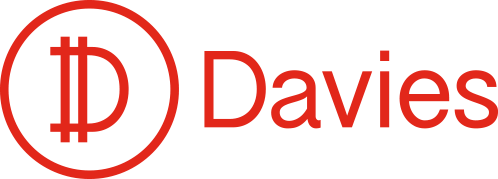Written by Davies on / Reading time: 5 minutes.
Estonia is “a country in the cloud”, but this isn’t the only stage in which it has been renovated. It has also proved a special interest in business and investments, cybersecurity and blockchain.
Are you staying with us? Let’s see what is all this about.
The Baltic republic stands for technological integration
The tiny Republic of Estonia has become a technological reference in Europe due to several reasons we’ll sum up in this post.
1-Cloud
For the last 20 years Estonia has been working on digitalization to improve the services provided by its public administration. With that goal in mind, the inhabitants have lived through a couple of decades with continuous changes and new functions, for example, to make easier voting or to access health services. In 2000 they already could pay taxes online, and only five years later Estonia became the first country to hold elections this way.
Later would arrive their electronic bet on health sector. “At the ambulance garage of North Estonia Medical Centre, a hospital northwest Tallinn, Arkadi Popov performs a practical demonstration. In an iPad he opens the same app the emergency team uses since 2015. If we write the identification code of the patient we have just picked, we can see his history, his next of kin’s contact numbers or even his doctor’s one”, wrote Spanish newspaper El País.
2-Cybersafety
For every problem, a solution. In April 2007, Government, universities, media and banks noticed they couldn’t enter their own websites. They had suffered a cyberattack they needed to solve as soon as possible. With that mission, civil servants, teachers, students and employees held a meeting and checked the security level of the affected institutions and companies. The government assistant for digital transformation, Linnar Viik, said that not all those people had the OK from Security, “but had the appropriate digital skills to solve the problem”. The world had changed, Estonia survived the attack and they set backup copies and so-called “data embassies”. In 2008 the NATO Cooprative Cyber Defence Centre of Excellence was inaugurated.
Nevertheless, first events related to cybersafety date back to 1965, when a computer was installed for a math school in Nyo.
3-Blockchain
Nowadays, many countries in the world have shown interest about blockchain, including Spain. However, in 2008 very few people knew what exactly was this technology about. It was unknown for almost everyone, but Estonia was already working on the creation of a national cryptocurrency, Estcoin, backed by the government. Soon it was being used to support the new digital businesses in the country and become an inspiration to other entrepreneurs such as Daniel García. In 2018 this young Spaniard created Davies, a new cryptocurrency which allowed to make loans between private individuals in just a few seconds. He did it by creating a company in Estonia that would endorse this new virtual currency.
Nowadays, almost 100% of the public services in the country are offered on the Internet. Credit for the success in this digitalization process should be given, among other things, to a way of thinking that is always customer-oriented. Steve Jobs said so.
The role of blockchain technology in Estonia
We are talking about the first digital nation in the world. Their technology commitment doesn’t stop here. Furthermore, the country works on a daily basis on new ways of improving their lifestyle in the fourth least populated place in Europe, only ahead of Malta, Luxembourg and Cyprus. As its physical population decreases, the digital one doesn’t stop growing. In 2014 they came up with the idea of transforming the country into a borderless digital society, so that anyone could become a virtual resident in their nation. So-called virtual residence was created and every week more and more new e-residents are registered. In the same direction, Estonian engineers and developers created Skype.
This is a country with a lot of digital history. Its public services are digitalised, citizens can use them in a safe way and data are encrypted and decentralized under X-Road protocol. Blockchain has been implemented to ease access to services and there’s a special event about this topic, named Moontec. Estonians have been the first to propose an Initial Coin Offering (ICO), that is, a public, state-held cryptocurrency offering, and Community presidence is already possible.
Estonia is a country which looks towards the future implementing blockchain on its services. Other events such as Blockchain Summit Latam let the country be aware of the latest technological innovations and transmit them to entrepreneurs, institutions, companies and regulators about the development of blockchain technology.
Estonia has been the connecting link and the inspiration point for many cryptocurrency entrepreneurs. Precisely, Daviescoin has got the cryptowallet and cryptotrade licences released by the government. Its technological stage has eased the place of establishment of the tax base for this coin, which has validity all over Europe. It is a unique chance to legally perform crypto activity through the request of two licences: one for exchanging and trading between fiat and virtual money, the other for providing cryptocurrency wallet services.
Would you like to know the basis and fundamentals of the blockchain? What are your views towards the future? Do you know what is going on in the cryptocurrency world? Follow our blog, where we share new topics weekly.
